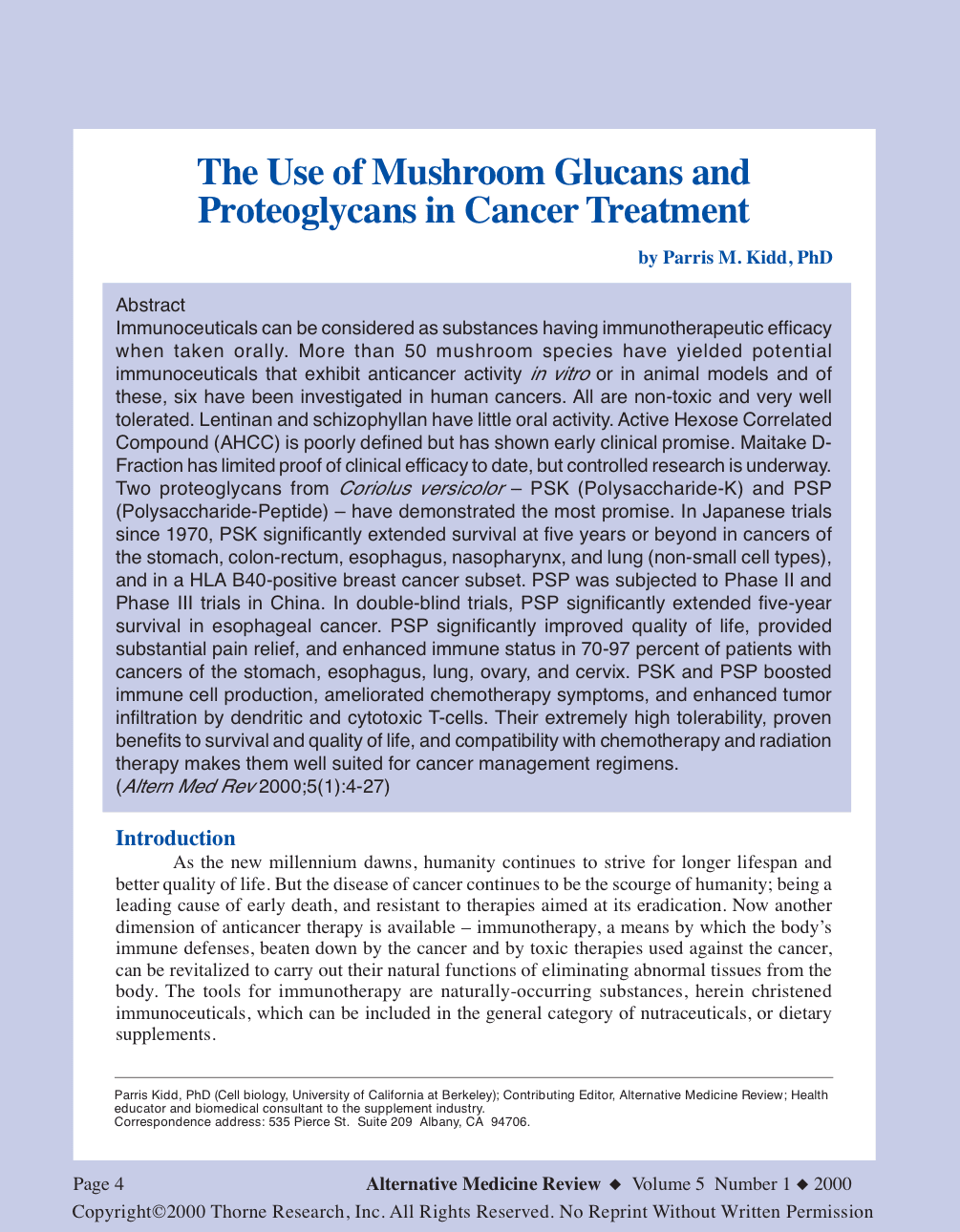Abstract
Immunoceuticals can be considered as substances having immunotherapeutic efficacy when taken orally. More than 50 mushroom species have yielded potential immunoceuticals that exhibit anticancer activity in vitro or in animal models and of these, six have been investigated in human cancers. All are non-toxic and very well tolerated. Lentinan and schizophyllan have little oral activity. Active Hexose Correlated Compound (AHCC) is poorly defined but has shown early clinical promise. Maitake DFraction has limited proof of clinical efficacy to date, but controlled research is underway. Two proteoglycans from Coriolus versicolor – PSK (Polysaccharide-K) and PSP (Polysaccharide-Peptide) – have demonstrated the most promise. In Japanese trials since 1970, PSK significantly extended survival at five years or beyond in cancers of the stomach, colon-rectum, esophagus, nasopharynx, and lung (non-small cell types), and in a HLA B40-positive breast cancer subset. PSP was subjected to Phase II and Phase III trials in China. In double-blind trials, PSP significantly extended five-year survival in esophageal cancer. PSP significantly improved quality of life, provided substantial pain relief, and enhanced immune status in 70-97 percent of patients with cancers of the stomach, esophagus, lung, ovary, and cervix. PSK and PSP boosted immune cell production, ameliorated chemotherapy symptoms, and enhanced tumor infiltration by dendritic and cytotoxic T-cells. Their extremely high tolerability, proven benefits to survival and quality of life, and compatibility with chemotherapy and radiation therapy makes them well suited for cancer management regimens. (Altern Med Rev 2000;5(1):4-27)

